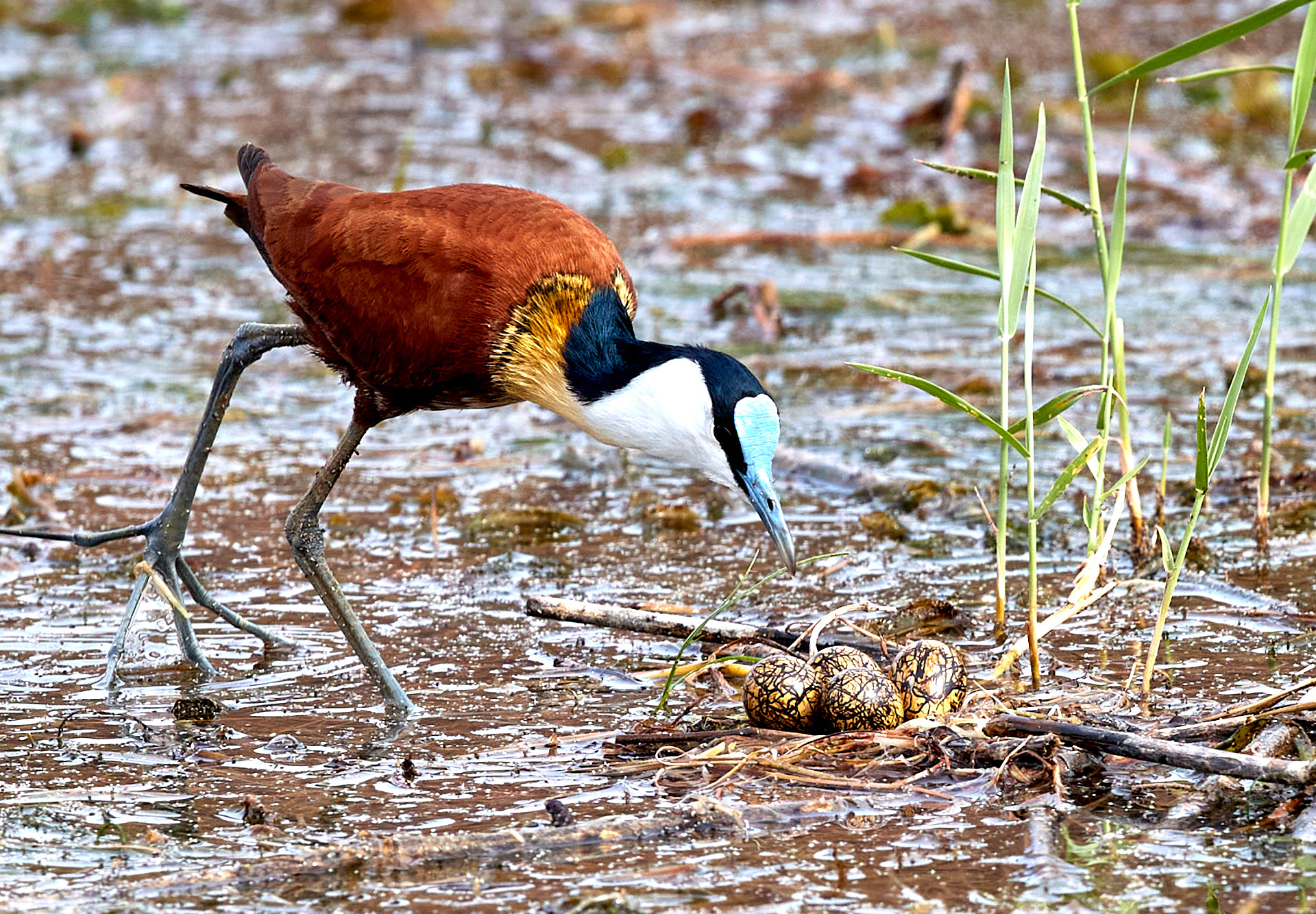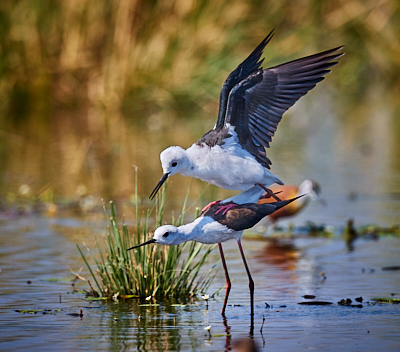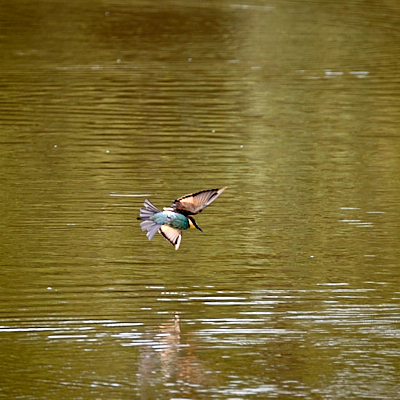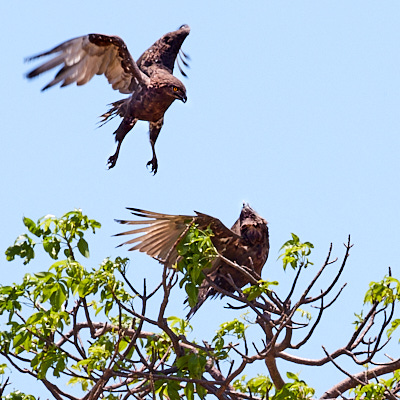BLOG
- HOME
- / Blog Main Page
- / Nature
TRAITS TO LOOK FOR WHEN CHOOSING A PERFECT FATHER FOR YOUR OFFSPRING
During a recent photo expedition, we stayed at Tattasberg Reed Cabins on the slopes of the Gariep River in the Richtersveld National Park for a few days and this gave me an opportunity to spend many hours observing the rich diversity of birds that can be found along the river.
I found a spot where there were some African Jacanas and I setup my camera and spent a good few hours observing the behavioural patterns of these colourful birds and checking out the best angle to photograph the birds taking into account the light and other conditions (something all photographers need to do before attempting to capture any spectacular shots)
What kept the Jacana coming back to the same spot over and over again
While observing one particular bird, I noticed that it was pecking away at the growth that was floating on the surface of the water, but every few minutes, it would return to the same spot where there were a few reeds were growing. This was fascinating to me so I decided to relocate myself to see if I could get a closer shot of what was happening.
To my surprise, although not clearly visible to the naked eye, peering through my 500mm lens I noticed that there were four eggs lying next to the reeds. These eggs are so well camouflaged that it was no wonder that I could not see them with the naked eye.
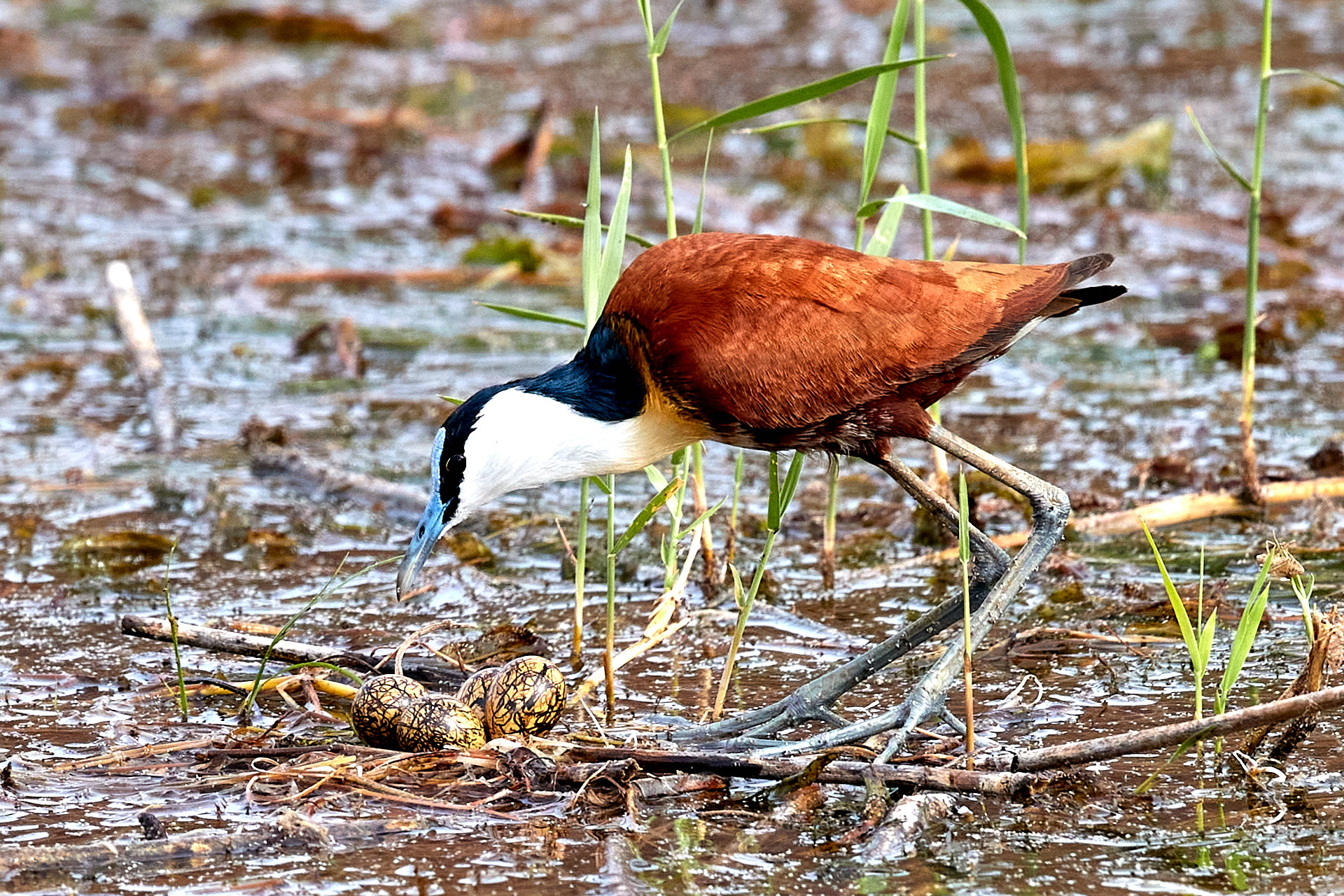
Planning my return
The light was not great but I took some pics anyway and marked the spot so that I could return later during what is called in photography ‘The Golden Hour’
Heading back to the cabin with great excitement, I started to read up more about the African Jacana and discovered that the female (which is twice the size of the male) has several mates and once she lays her eggs, it is the responsibility of the male to protect them and sit on them until they hatch.
Failed attempt of a master egg thief to steal the African Jacana eggs
The next day my brother and I headed back to the spot where I had seen the eggs to capture some images of the African Jacana eggs and what awaited us was quite amazing.
I had returned with my tripod and gimble to ensure that I would have the best chance of getting a clear image of the African Jacana tending the eggs. We were also joined by the Ranger who told us that in the nine years he had worked in the park, he had never seen African Jacana eggs.
As I observed the male Jacana, I noticed that he was behaving very strangely, unlike the day before where he seemed much more at ease. He lifted his wings high into the air and squawked loudly at what appeared to be a large fish swimming in the shallow water in front of him.


This was no fish – it was the dreaded master egg thief
The Jacana had spotted an intruder and he steered the intruder away frantically from where the eggs lay and eventually to my amazement, I saw what I thought was a fish emerging from the murky water – but fish don’t climb onto rocks so what was this creature. The African Jacana obviously knew only too well that this was the dreaded master egg thief – a water monitor (a large lizard type creature who eats eggs).

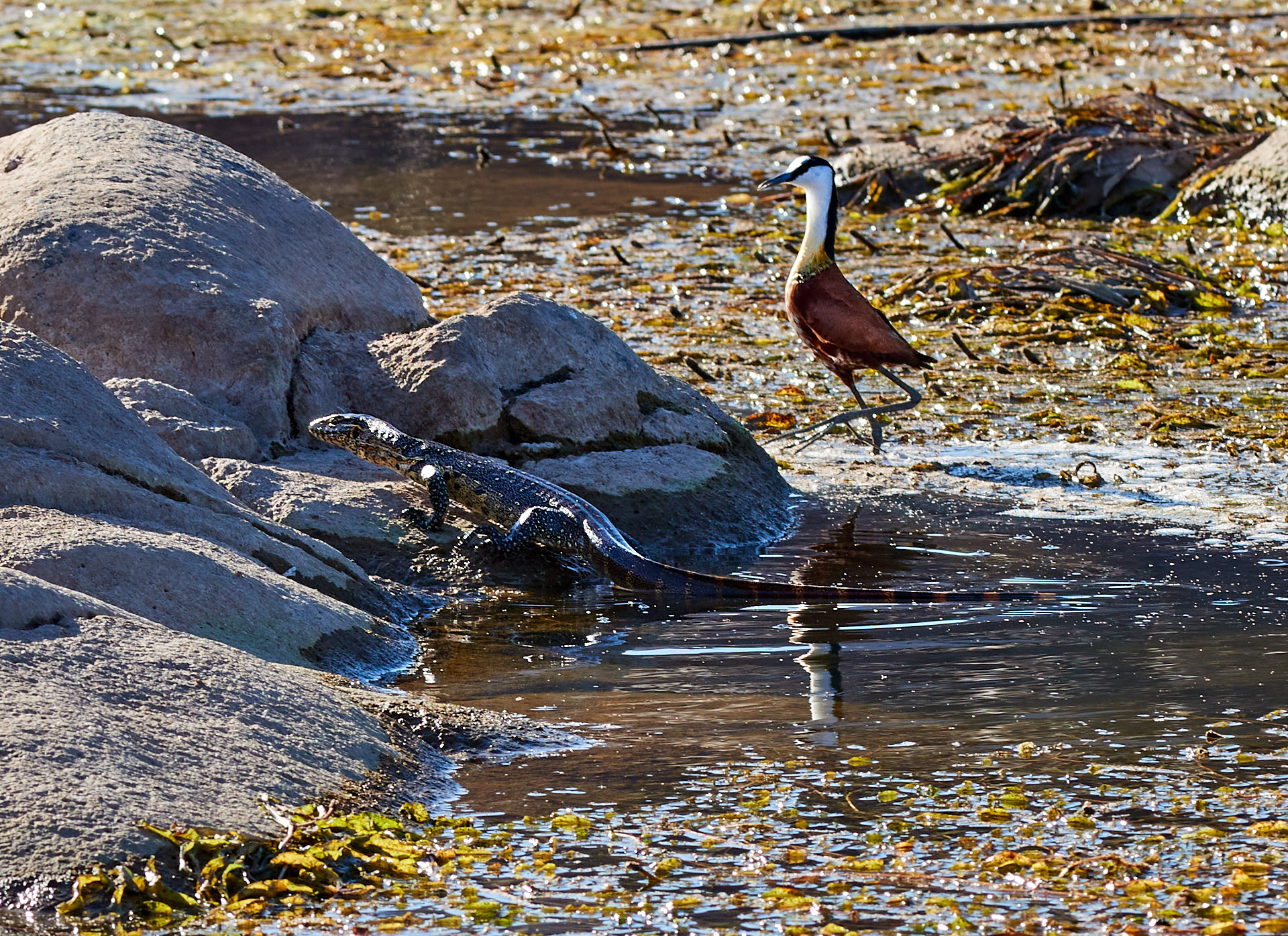
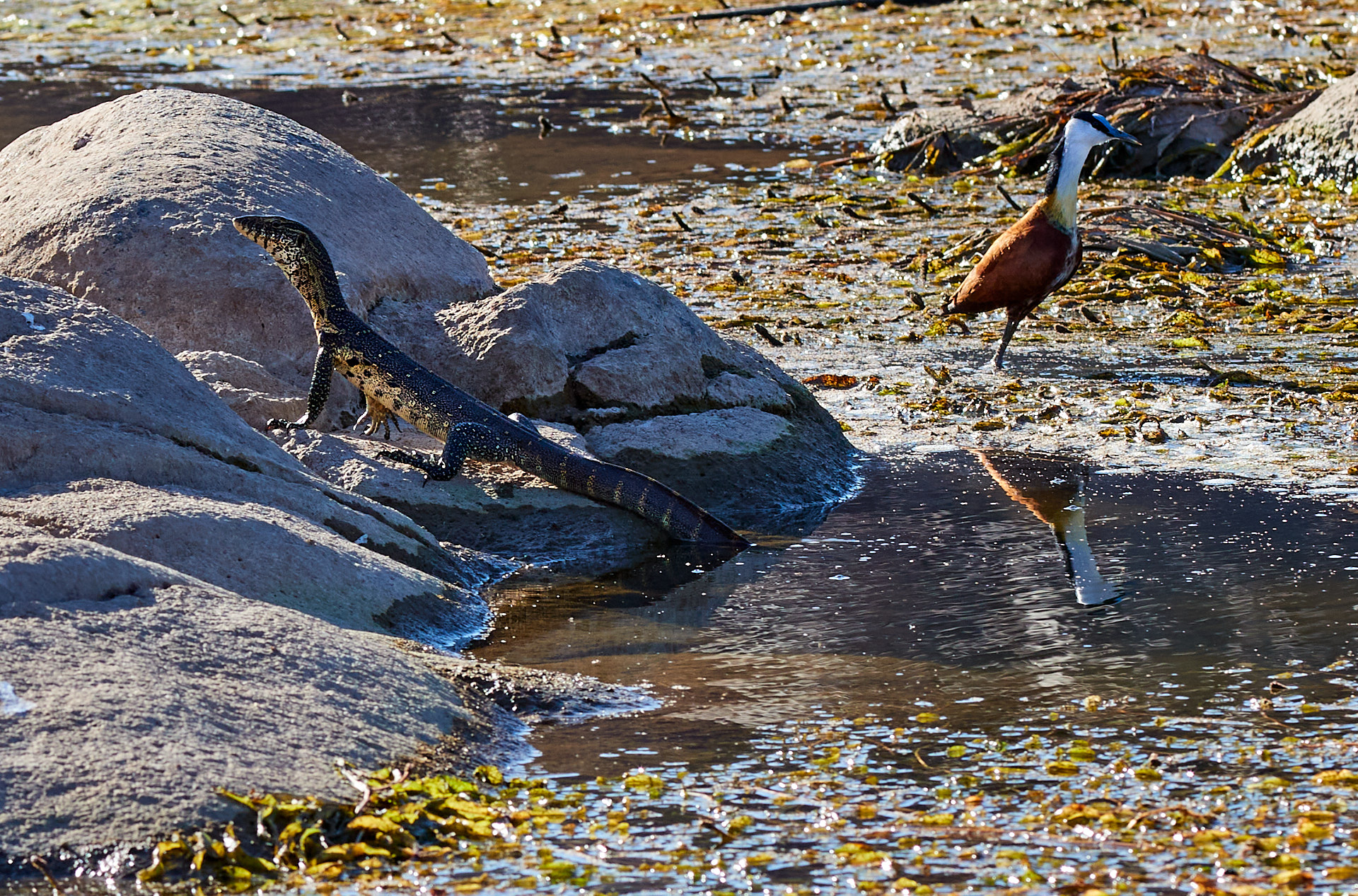

This kind of imminent nature drama is every photographer's dream.
It is every photographers dream to capture some action shots like this, but the thought of a water monitor devouring these beautiful eggs made us all sick to our stomachs. I said to my brother, “well this is nature and we are possibly going to witness the sometimes cruel side of nature right here before our eyes”
I don’t know who was more concerned about the wellbeing of the eggs at that point – the African Jacana or us, but either way, this was real drama unfolding right in front of us.
What happened next was a major relief for all of us
As we watched the events unfold - the water monitor found its way to the top of a rock and lay there as if it was no longer interested in the eggs. The Jacana seemed relieved and moved away, but once it was far enough, the sly egg thief moved quickly around the back of a rocky outcrop and appeared almost adjacent to the spot where the eggs lay. “This is it…” we thought, “those eggs are about to be devoured”
We watched in disbelief as the water monitor seemingly had not seen the eggs and moved away, much to our delight and relief. But was this yet another decoy and would the water monitor return again during the night.
The next day – a call of joy, excitement and relief
The thought of going back to the spot to see if the eggs were still there was not something that I wanted to do and I was happy just to remember what we had seen the day before and to leave the gory details unanswered. So instead of going downstream today, I took my camera and went upstream, avoiding the spot where we had seen the eggs.
While sitting on the banks of the river, I heard my radio crackle and it was my brother Peter who was calling me. There was a sound of joy, excitement and relief in his voice as he told me to come downstream if I wanted to see the eggs again – yes they had survived the threat of the water monitor.
Happily the male African Jacana was once again going about his fatherly business walking on the floating plants and finding whatever he could to eat. His appetite was clearly back and once again he moved back now and again to tend the precious eggs.
